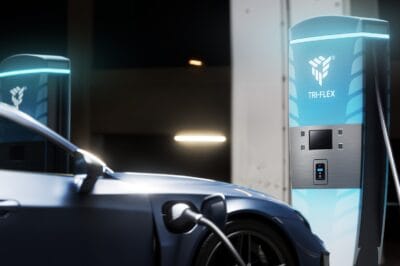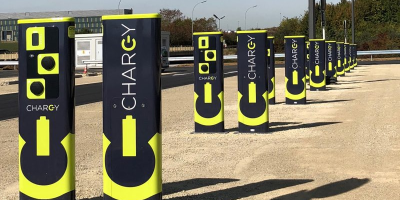Ford & Purdue to improve charging via cooling
In collaboration with researchers from Purdue University in the US state of Indiana, Ford wants to develop a charging cable that, thanks to a special cooling mechanism, is supposed to be “significantly more efficient than usual products” and reduce charging processes “theoretically” to the length of a conventional refuelling process.
According to Ford, the core of the technology is a process, for which a patent has already been filed, in which the heat generated when large amounts of electricity flow through a charging cable is dissipated by means of a special cooling liquid. In an “appropriately equipped electric vehicle”, the charging process should thus be able to be shortened to a few minutes. However, there is still a long way to go before the technology is commercialised. Over the next two years, the partners first want to begin extensive testing of a prototype charging cable.
“Today, chargers are limited in how quickly they can charge an EV’s battery due to the danger of overheating. Charging faster requires more current to travel through the charging cable,” visualises Michael Degner, Senior Technical Leader, Ford Research and Advanced Engineering. “The higher the current, the greater the amount of heat that has to be removed to keep the cable operational.”
The development approach taken by Ford and Purdue University involves the use of a liquid coolant that evaporates during the charging process. In theory, it should even be possible to reduce the time it takes to charge electric vehicles to the duration of conventional refuelling processes, according to an accompanying statement. The project builds on the university’s 37 years of expertise in cooling methods for electrical and electronic systems.





0 Comments